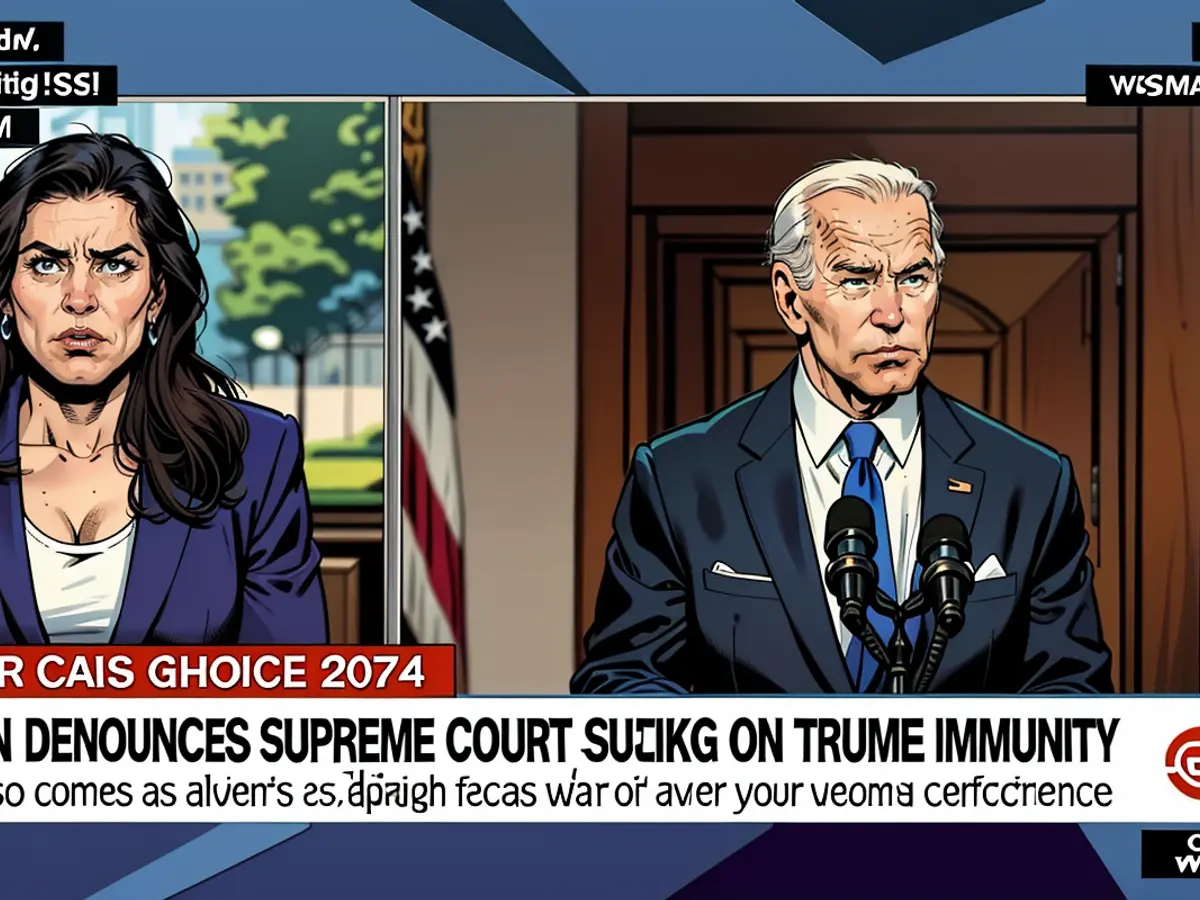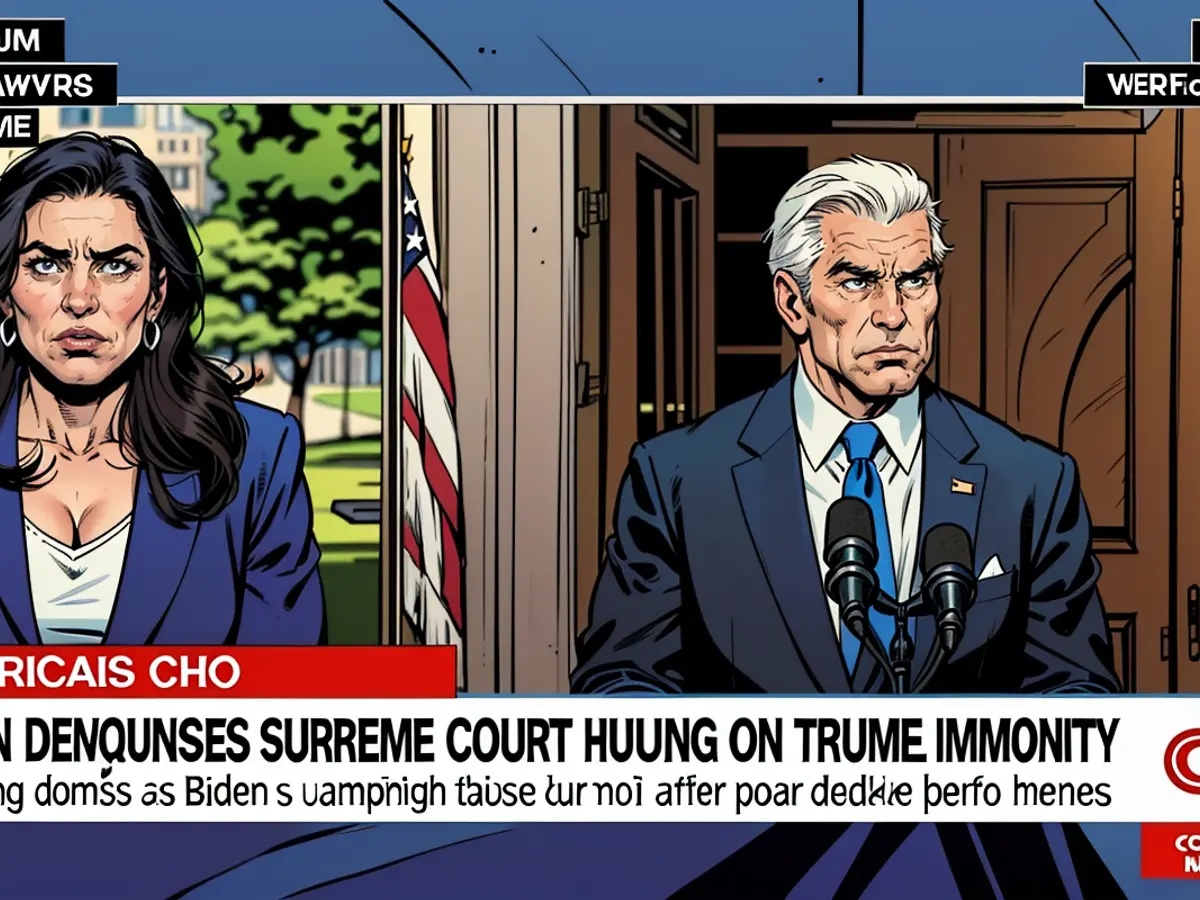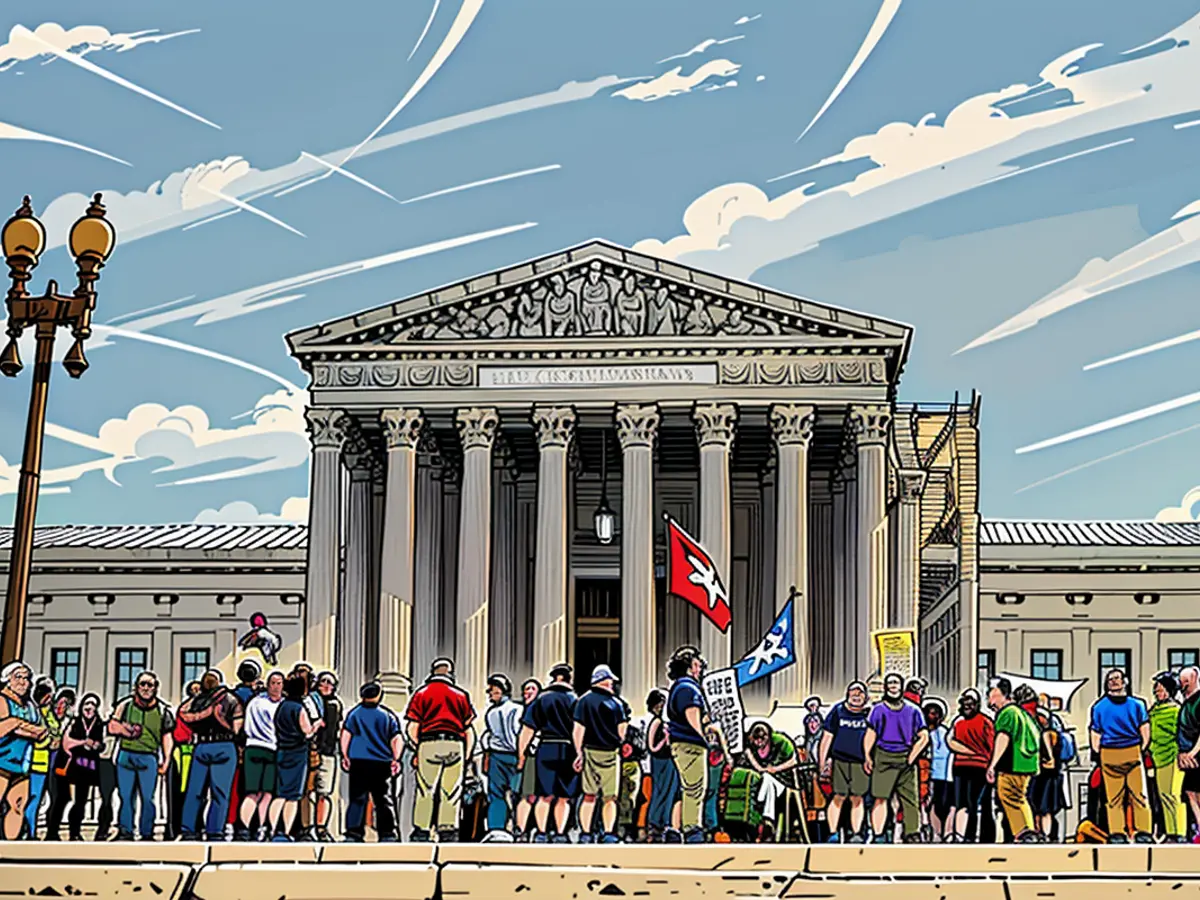
Opinion: The presidential immunity ruling is good for Trump — and for Biden, too
Here’s the most important single fact to know about the high court’s landmark decision: It sets forth a framework for determining which actions by a president — any president — are absolutely immune, presumptively immune or not immune at all.
I have a unique perspective on the issue, since I represented Trump during the investigative phase of this case. I participated in numerous hearings in a closed courtroom where we litigated issues of executive privilege. Yes, he was my client. But the decision will apply to many presidents for years to come who are not.
The impact of this decision is not limited to the prosecution of Trump, but rather, affects how all future administrations are treated. And that, in my view, is a very good thing.
The importance of some form of qualified immunity for our presidents is about its effect on potential future investigations much more so than the current prosecution. The Court ruled that the former president may claim immunity from criminal prosecution for some of the actions he took in the waning days of his presidency. The ruling rejects a decision from a federal appeals court in February that found that Trump, who has always denied all wrongdoing, enjoyed no immunity for alleged crimes he committed during his presidency to reverse the 2020 election results.
The rhetoric about an “imperial presidency” by some critics of the ruling has been breathless — and in my view, greatly overblown. The danger facing our country has always been not that presidents will get away with crimes, but rather the intrusiveness of future renegade administrations investigating their political opponents.
Executive privilege, which normally protects the inner workings, discussions and decision-making processes of the president can be pierced based on a grand jury’s need for information. Thus, the only way to defeat such a subpoena would be to show that the grand jury does not have a need for the information, or that it can be obtained elsewhere. The Court made that much easier to achieve with its wise and judicious ruling.
The absence of qualified immunity, along with the less restrictive standard on piercing executive privilege, would mean that any administration can convene a grand jury to investigate its predecessor and then use that grand jury to eviscerate privilege. If certain presidential conduct is immunized, then the grand jury has no legitimate “need” for the information.

To illustrate my point, let’s say hypothetically that Trump were to win in November. Without qualified immunity for presidents, one could argue that once he is sworn into office, he could immediately convene a grand jury to look at potentially underhanded dealings by his predecessor, President Joe Biden. Some might argue that it would be appropriate to investigate any and every policy decision made by Biden that has even a tangential impact on either China or Ukraine, given his son Hunter Biden’s business dealings in Ukraine and China.
One could imagine how this might play out: The new president’s Department of Justice could then issue grand jury subpoenas to every former Biden administration official and interrogate them for hours on every aspect of their foreign policy discussions and decisions.
The impact of such an investigation would be profound. All of these former government officials and employees would have to pay out of pocket to hire attorneys. Misstatements would risk perjury and obstruction prosecutions. Even if such a hypothetical investigation did not result in an indictment, the effect would be to impose a significant disincentive for anyone to serve on the White House staff.
Get Our Free Weekly Newsletter
- Sign up for CNN Opinion’s newsletter
- Join us on Twitter and Facebook
Biden’s immunity from prosecution would be one way to ensure such an investigation never got off the ground. And it would spare future administrations any reason to fear future such potentially overzealous or politically motivated prosecutions.
For those who think that my hypothetical is unrealistic, remember that if Trump wins, he may want, in fact, to investigate Biden or members of his administration. And there’s a possibility that, four years hence, a potential subsequent Democrat administration will likely return the favor and investigate those who held key administration roles during a second Trump term. The Court, in its wisdom, spared the president such an ordeal.
In short, while many political and legal analysts are focusing only on how this decision affects the current charges against Trump, the actual implications go far beyond this one case and will have a protective effect for all future administrations.
So yes, the Court got it just right. Trump is bound to be pleased with the decision. But future presidents, far into posterity, should be as well.
The ruling on qualified immunity for presidents is crucial in preventing future administrations from investigating their political opponents excessively, as highlighted by the potential investigation of President Joe Biden's dealings if Trump were to win again. The absence of this immunity could lead to financial burdens, legal consequences, and a chilling effect on public service, as former officials would face potential investigations based on their past decisions.








